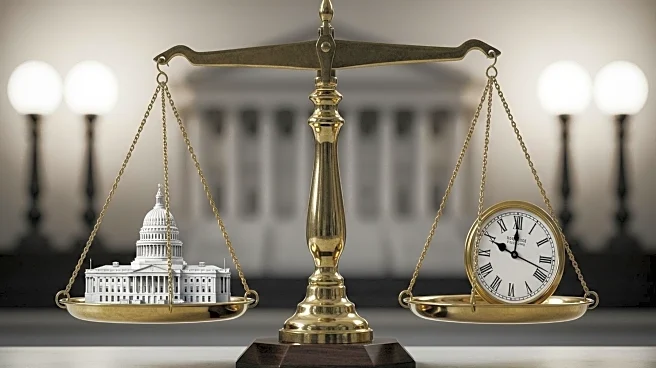What is the story about?
What's Happening?
The U.S. Senate is set to vote on a spending bill as the government shutdown reaches its 14th day. The shutdown began due to a deadlock over budget allocations, with both parties unable to reach a consensus. Republican House Speaker Mike Johnson has not called lawmakers back to Washington, prolonging the impasse. The shutdown has affected various government operations, with federal employees facing furloughs and essential services being disrupted. The Senate's return from its holiday break marks a critical juncture in efforts to resolve the budgetary stalemate.
Why It's Important?
The ongoing government shutdown has significant implications for U.S. politics and the economy. Federal employees are experiencing financial strain due to unpaid wages, and government services are being curtailed, affecting millions of Americans. The shutdown also highlights the deep partisan divisions in Congress, which could impact future legislative negotiations. Businesses reliant on government contracts may face delays, affecting their operations and financial stability. The prolonged shutdown could lead to decreased public trust in government institutions and exacerbate political tensions.
What's Next?
The Senate's upcoming vote on the spending bill is a pivotal moment that could determine the duration of the shutdown. If the bill passes, it may pave the way for negotiations to resume and potentially end the shutdown. However, if the deadlock continues, the shutdown could extend further, increasing pressure on lawmakers to find a resolution. Stakeholders, including federal employees, businesses, and the general public, are closely monitoring developments, hoping for a swift resolution to restore normal government operations.














